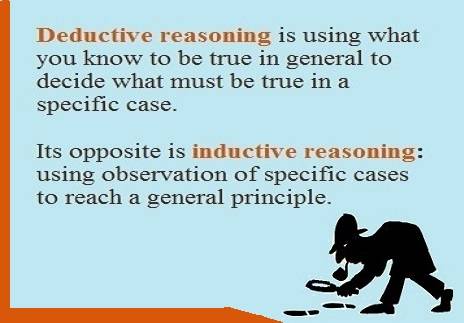Seven Important Latin Roots
These seven Latin roots are the origins of a large number of English words. Most of their derivatives below are very common in academic writing. (Many of these words are also on study lists for the TOEFL and other tests.)
Studying these words will help you understand how prefixes and suffixes change the meaning and use of words. These word-building skills will also make it easier to guess the meaning of other words you read.
Take a quick look at these lists. If you think you know them, try the matching practice at the bottom first, then study any that you aren't sure about.
Some of the words -- most from ducere, in fact-- are not easy to guess from their roots. These words are so useful I included them anyway on the page (not in the practice)-- with explanations.
How to Use This Page
The headings give each Latin verb in italic type and its English meaning.
Beneath each root are some English words derived from it, with their parts of speech and meanings.
After these, there's a short list of similar words with related meanings.
Then there is a matching game using some of each root's easier forms.
If you are looking for a larger list of Latin roots of common English words, see 50 Word Roots from Latin. Studying both pages can really increase your English vocabulary.
Why Are There Different Word Forms?
The forms of some of the English words are quite different from their Latin roots. (We get both 'success' and 'succeed' from cedere, 'deduct' and 'deduce' from ducere, etc.)
This is partly because some Latin forms are very different from the verb infinitives. (Latin infinitives include cedere, ducere, etc.) Latin noun or past participle forms are especially likely to be different.
For example, the past participle of vertere is versus, and we get English words from both forms. Other differences are due to changes over time from Latin to French and then into English.
The definitions here give only the most common meaning(s) of each word, in simple language. I tied them to the root meaning of the Latin roots when possible. For more accurate definitions and other meanings, check a good dictionary.
(Abbreviations for parts of speech: v.= verb, n.= noun, adj.= adjective, adv.= adverb, prep.= preposition.)
Cedere- to Go, Depart, or Yield

- access, n.- ability to reach or use something (from ad + cedere)
- concede, v.- to yield to (go along with) an opponent’s argument, at least in part
- excessive, adj.- too much (going beyond what's wanted)
- intercede, v.- to go between people, requesting help or mercy for one from the other
- precede, v.- to go before or in front of
- procedure, n.- the steps to follow in a complicated process
- recession, n.- a diminishing, especially a weakening economy, though not as weak as a depression
- succeed, v.- to achieve a goal
- successive, adj.- events following each other
- unprecedented, adj.- a first: without a precedent
Also important (from the above): accessibility, concession, exceed, exceedingly, excess, inaccessible, intercession, intercessor, precedent, procedural, proceed, process, procession, recede, recessive, reprocess, success, successful, succession, unprocessed, unsuccessful.
Ducere-- to Lead

- conduct, v.- to guide, or n.- behavior (the way one leads his life)
- conductivity, n.- the ability to carry electric current (or heat or sound)
- deduce, v.- to reason logically (draw conclusions from general principles about what to expect in specific cases)
- deduct, v.- to take away from a sum of money (for example, to deduct childcare expenses from taxes due)
- deduction, n. (from either deduce or deduct)
- induce, v.- to cause or lead someone to act
- introduce, v.- to present a person (or a new idea) to someone
- produce, v.- to make something (lead it into existence), or n.- fresh vegetables and fruits for sale
- product, n.- something that is produced
- reduce, v.- to decrease (lower the amount)
- reproduce, v.- to copy, or produce more (for example, of the same species)
Also: conductor, deductible, deductive (reasoning), induction, inductive, production, productive, reduction, reproducible, reproduction, reproductive.
Quaerere- to seek (look for):
- acquisitive, adj.- wanting a lot of money or things
- inquest, n.- an investigation into the cause of a death
- inquire, v.- to ask about, look into
- prerequisite, n.- a requirement that must be met before something can happen (You must meet all the prerequisites before you can take certain classes. For example, passing Algebra 2 might be a prerequisite for taking a calculus course.)
- quest, n.- a search for something important
- request, v.- to ask someone for something
- requirement, n.- something that must be done
- requisition, n.- an order for something needed
Also acquire, acquisition, inquire, inquiry, inquisition, question, require.
Tenere- to hold
- abstain, v.- to hold oneself back from something
- contain, v.- to hold something within.
- content or contented, adj.- happy (desires that are limited or contained.)
- detain, v.- to hold someone back or to prevent them from leaving
- maintain, v. (from manus—hand + tenere)- to keep something usable or hold it in a good condition.
- obtainable, adj..- able to get something.
- pertain (to), v.-to belong or relate to
- pertinent, adj.- related
- retention, n.- keeping something
- sustain, v. (from L. sub-- up from below + tenere)- to hold up or support (for a long time.)
- sustenance, n. (Now used for food, since it sustains life.)
- tenable, adj.- able to be held, reasonable (usually used for ideas.)
- tenet, n.- a belief held to be true
Also: abstinence, container, containment, contentment, contents, detainee, detention, discontented, maintenance, obtain, retain, retainer, sustainability, tenacious, unsustainable, untenable
Venire- to come
- convention, n.- a large gathering
- event, n.- a planned happening
- eventually, adv.- sooner or later
- intervene, v.- to come between people, try to stop a dispute
- invent, v.- to create a new product or machine
- prevent, v.- to stop from happening
Also: convene, eventual, intervention, invention, preventable, prevention.
Vertere- to turn
- adversary- opponent
- adverse, adj.- contrary or opposing;
- convert, v.- to change something into something else (often to cause someone to change their beliefs), or n.- a person who has changed religions
- diversion, n.- a break from the usual routine; entertainment
- extrovert- a person who gets energy by being around other people
- introvert- a person who is more comfortable being alone than in large social gatherings
- invert, v.- to turn something upside down or inside out
- perverse, adj.- turned away from what is right
- reverse, v.- to turn something around so it will go in the opposite direction, or adj.- the back of something, or backwards
- revert, v.- to return to a previous condition or form.
- subvert, v.- to work secretly to undermine or overthrow the government
- transverse, adj.- lying across, sideways
- versatile- able to change, adaptable
Also: adversity, conversely, conversion, convertible, diverse, diversify, diversity, divert, extroversion, extroverted, introversion, introverted, inverse, inversely, inversion, irreversible, perversely, perversion, pervert, reversible, reversion, subversion, subversive, versatility, version, versus.
Vocare- to
call
(+ vox- voice, & vocabulum- a word)
- advocate, v.- to argue or plead for someone, or n.- one who pleads someone’s case [matching: to speak in favor of someone]
- avocation, n. (from ab- away from + vocare-- to call away from)- a strong interest or pursuit, like a non-paying job
- convocation, n.- a group called together
- evoke, v.- to call out a memory, feeling, or response
- invoke- to call on (or refer to in order to prove a point)
- invocation, n.- a formal prayer (usually calling on God to bless a gathering)
- irrevocable, adj.- cannot be undone (called back)
- provoke, v.- to speak or act in a way that calls up a negative reaction
- revoke, v.- to call back or retract (a law or privilege)
- vocal- relating to the voice (or with a loud voice: “a vocal protest.”)
- vocational, adj.- relating to jobs
Also: convoke, evocative, provocative, provocation, revocable, revocation, vocabulary, vocally, vocation.
Matching Practice
Instructions: Match the items on the right to the items on the left. The first one (contents) has been done as an example.
See Roots Memory Game 1 (Quaerere), Memory Game 2 (Cedere) and Memory Game 3 (Vertere) for very different matching games with three of these roots. Most practice different English words, as well.
These are "Memory" (or "Concentration") games. Players turn over two cards of twelve (or sometimes more) at a time, looking for matches. When the cards don't match, they flip back over. Players try to remember matching card locations. Then they can use their turns to choose (and win) those pairs.
It's a lot of fun, and a good mental exercise! It's also a great way to deepen the connections in your mind between words and their meanings.
You can also practice many of these words with a word search puzzle. (Look for its answers here.)
To review the prefixes used with Latin roots, go to List of Prefixes. They will make many of the meaning clearer. See Word Families and List of Suffixes for the ways English words can change form. (This is how we can change verbs to nouns or adjectives, etc.)
For other Latin roots, see 50 Word Roots from Latin, the English Words with Latin Roots Challenge (see how many you can think of-- a good way to expand your vocabulary fast, plus review the words on this page, which should give you a good head start), Vocabulary from Classical Roots, and The Latin Root Ponere.
Home> Roots, Prefixes and Suffixes> 7 Important Latin Roots.
To review the prefixes that can combine with Latin roots and help you understand the meanings of these words, go to List of Prefixes.
See Word Families and List of Suffixes for the ways English words can change from verbs to nouns or adjectives, etc. (word derivations.)
For other Latin roots, see
If you're interested in teaching roots, check out the inexpensive lessons and practice activities on Root, Prefix, and Suffix Worksheets.
Home> Roots, Prefixes and Suffixes> 7 Important Latin Roots.
Didn't find what you
needed? Explain what you want in the search box below.
(For example, cognates, past tense practice, or 'get along with.') Click to see the related pages on EnglishHints.
| site search by freefind | advanced |









